From banquets to Cheng Lei: how Australians became hostage to Xi’s China
Two years after she was detained, Australian journalist Cheng Lei is still in prison in Beijing with no family contact.
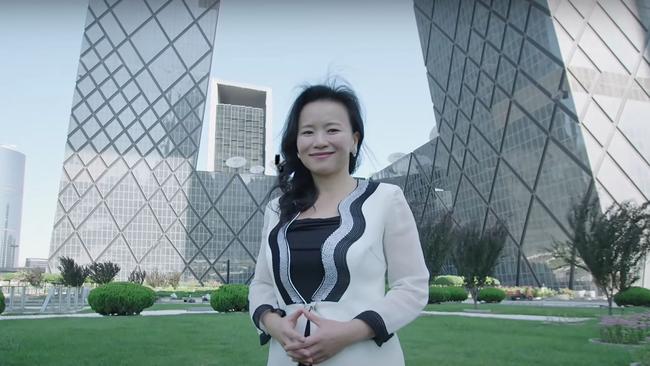
The Chinese delegation was in high spirits. Glasses were clinking at a celebratory dinner in Canberra. They had flown from Beijing to toast a new consular agreement with Australia.
It outlined the rights for future Australians detained in China – people such as Cheng Lei, the television journalist, who was thrown into a Beijing prison cell two years ago without charge. She still hasn’t been sentenced.
The Agreement on Consular Relations between Australia and the People’s Republic of China came into force in 2000. Back then, Jiang Zemin was China’s president, charming Australia’s prime minister, John Howard, with Shakespeare recitations. The consular agreement was a product of those optimistic times.
“We all sat around a table at a restaurant in Civic in Canberra toasting each other,” says Ian Kemish, who was then running Australia’s consular service. “There was a spirit of engagement in the air.”
At the close of the first decade of the Xi Jinping era, senior Australian diplomats don’t talk that way about China any more. The consular agreement is in tatters, along with the 2015 China-Australia Free Trade Agreement, which Beijing shredded with its no-holds-barred campaign of economic coercion against Canberra in 2020.
Australia’s China ambassador, Graham Fletcher – the foremost China expert in the Australian government – was frank in his address outside the Beijing court where Cheng, a University of Queensland graduate, was tried in secrecy on March 31.
‘See the difference’
“Our consular agreement says we ought to be able to attend trials of any kind,” Fletcher said after he was denied access to the barely three-hour-long closed trial.
Kemish, who was in charge of the agreement’s early implementation, agrees with his former Foreign Affairs colleague: “I’m with Graham … It’s certainly a breach of the spirit.”
Beijing used the same secretive tactics for the one-day, closed trial of fellow Australian Yang Hengjun, who was snatched in China’s south on January 19, 2019. Fletcher was denied entry to his one-day closed hearing in May 2021.
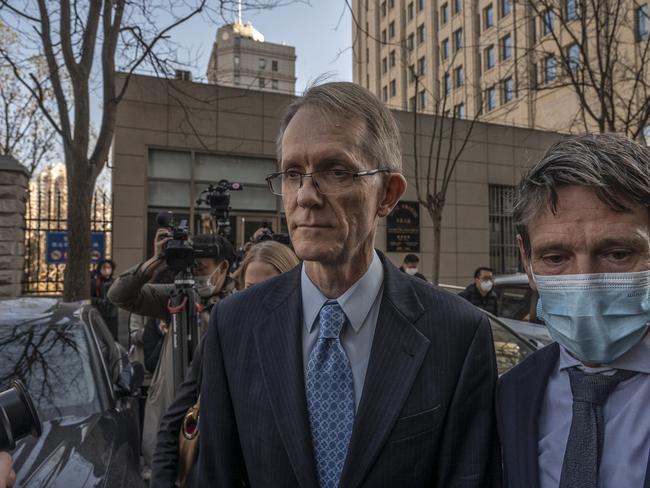
Yang had been trying to visit a sick family member. The Australian government knew the writer – known as the “democracy peddler” to his huge Chinese-language readership – was in huge trouble when it discovered 10 agents from his old employer had detained him at Guangzhou’s international airport. Before becoming an Australian citizen, Yang was a member of China’s secret service. This time, his political connections didn’t save him.
Cheng’s situation is more puzzling. She was an anchor on CGTN, China’s English-language state broadcaster. She even coined the network’s official slogan, “See the difference”.
Two years ago Fletcher’s team in Beijing learned she was missing from Nick Coyle, Cheng’s long-time partner. He had visited her apartment with Cheng’s close friend, Haze Fan, a Chinese national and Bloomberg journalist. They found Cheng’s computer and passport were gone. Months later, Fan also “disappeared”.
It wasn’t until August 27, 2020, almost a fortnight after the Australian journalist was taken into the shadowy Chinese prison network for torturous interrogation sessions, that Fletcher’s team in Beijing was able to speak to her over video.
By then it was clear this had not been a mix-up. There was no confusion about Cheng’s Australian citizenship – indeed, there were fears it had made her a target.
Months earlier, the Morrison government had enraged Beijing by calling for an inquiry into the origins of Covid. Ambassador Fletcher was summoned to the Foreign Ministry in Beijing for what may be the most epic dressing down in the nearly 50-year history of Australia’s official relations with the People’s Republic.
Then in June, Australian security agents searched the homes of four Chinese state media journalists in Sydney in relation to a foreign interference case. All four returned to China.
Chinese state media only revealed their experience after foreign minister Marise Payne went public with the dreadful news: “Ms Cheng Lei has been detained in China.”
That was on August 31, 2020. Cheng is now in her third year in a Beijing prison.
Quiet release plan
It would be hard to overstate the damage Beijing has inflicted with its abuse of Yang and Cheng.
The Lowy Institute’s authoritative poll recently found only 12 per cent of Australians now trust China to act responsibly in the world. That’s a precipitous 40-point fall since 2018.
On the first anniversary of Cheng’s detention, The Australian revealed the television anchor’s Beijing colleagues found out she had “disappeared” when someone on the CGTN breaking news desk saw a report in international media.
Days earlier, management had made them sign a strange legal document, called a nondisclosure undertaking. Many quit in disgust.
Former foreign minister Bob Carr spoke for many Australians when he recently called Yang and Cheng “hostages”.
Carr also canvassed publicly some of the scenarios the Albanese government is privately discussing about how Canberra might get them out.
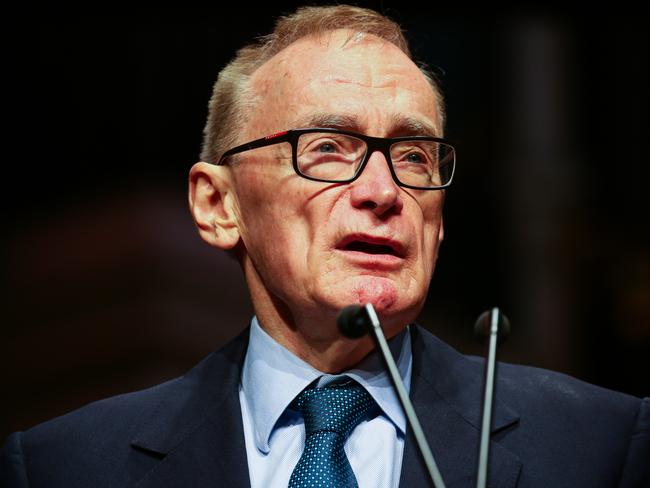
He suggested Trade Minister Don Farrell make a trip to Shanghai. There, Farrell could tell his Chinese counterpart that Canberra would review the anti-dumping actions that had upset Beijing and make it clear Australia would not block China’s entry into the sweeping CPTPP trade pact.
In return, Carr outlined in The Sydney Morning Herald, Beijing could lift the bans it had imposed on $20bn a year of Australian exports: barley, beef, copper, cotton, lobsters, timber, wine and coal.
Then the Australian cabinet minister could bring up the hostages, much as the Morrison government did to secure the release of Australian academic Kylie Moore-Gilbert from the dungeons of Iran.
“Saying his farewells, Farrell can hand over a letter from Prime Minister Anthony Albanese to President Xi Jinping proposing we follow this ‘win-win’ on trade with the quiet release of the two Australian hostages, Dr Yang Hengjun and Cheng Lei,” Carr advised.
It is far from clear whether such a scheme would work, but these are the conversations that now take place in Australia about Xi’s China, which, like Iran, North Korea and Russia, is an unapologetic practitioner of hostage diplomacy.
“China’s narrative about being a benign and positive contributor to the international order is seriously undercut by behaviour like this,” says Kemish, who has written a book, The Consul, on Australians in trouble overseas.
Beijing started acting much more assertively in 2008. China’s leaders saw the US’s power as diminished after the global financial crisis, emboldening their behaviour.
Rio Tinto’s then Shanghai-based executive, Stern Hu, was the first Australian taken hostage by this increasingly confident China back in 2009. Secret police detained Hu weeks after the Anglo-Australian miner backflipped on a $19.5bn offer by Chinese state giant Chinalco to increase its stake in the strategically important iron ore supplier.
Beijing felt it had been tricked.
Hu spent nine years in prison in China. Many thought his punishment was a message to Canberra. He was released in 2018 and has never spoken about his ordeal.
China’s hostage-taking has become more brazen in the Xi era, which since 2016 has been characterised by a surging belief in the superiority of Beijing’s Leninist model.
It has made China an increasingly perilous place to visit for citizens of the growing number of countries in Beijing’s bad books.
For 1020 days, two Canadians – Michael Spavor and Michael Kovrig – were the most high-profile hostages in Xi’s China. They were thrown into the brutal Chinese disciplinary system in December 2018, an undisguised response to the arrest in Canada days earlier of Huawei executive Meng Wanzhou.
Kemish’s book reveals just how different Beijing’s approach was less than 20 years ago when Australia’s high commissioner in Nepal launched an extraordinary operation to rescue a group of Australian mountaineers.
Using Nepalese defence assets – a Russian-built Mi-17 helicopter – the Australian government was able to rescue the mountaineers trapped in Tibet, in China’s far west, on the slopes of the world’s sixth-highest peak. That daring mission was only possible because of the consular agreement.
Beijing, then in the early, cautious years of Hu Jintao’s time as China’s leader, was keen to be helpful.
“The Chinese foreign minister rang the Australian acting foreign minister, Mark Vaile, to give him the good news that, yes, it could go ahead,” Kemish recalls. “Can you imagine that happening now?”
‘Please come home’
It is now a much more fraught time to be Australian in China.
After more than 1300 days in prison – including torture sessions during his pre-trial interrogation – Yang, 57, still has not been given a sentence. His day before a Beijing court was in May last year, 16 months ago. Friends worry about his declining health. Three and a half years after his imprisonment, he has never been allowed to speak to his wife or children.
Cheng, 47, has now spent more than 700 days in prison. Not once has she been allowed to speak to her two children, who are both in Melbourne. They write letters to their mum to be read by Australian diplomats at monthly consular visits, which are all done over video.
“Dear Mum, I started year 7 today and think about you every day,” reads one letter. “I wish you were here.”
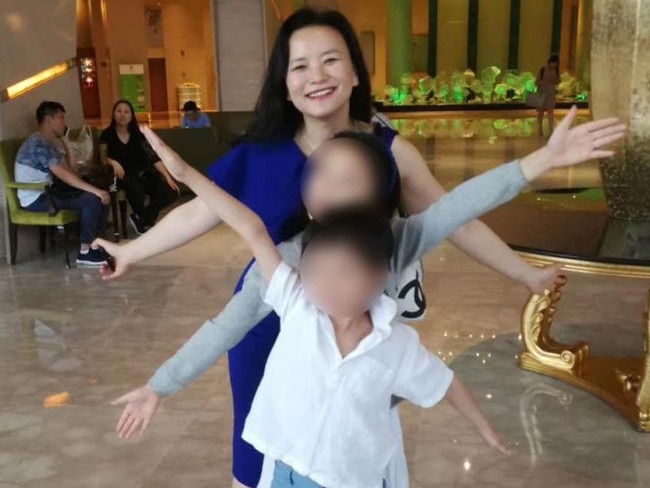
Another, first reported by The Daily Telegraph, asked her to come home: “Not a single day goes by without me missing the best mum in the whole world … I will be strong, just like you taught me, please come home soon.”
Cheng teaches English to her cellmates, which she says helps give her purpose. She reads books sent by her partner, Nick Coyle, who was the head of the China-Australia Chamber of Commerce. Coyle – who Cheng calls “my knight in shining flip-flops” – has since left the job and Beijing so he can freely advocate for her case.
The blue-chip members of the China-focused business lobby he used to run – including ANZ, KPMG, CBA, Telstra, Woodside and King & Wood Mallesons – have had to explain to their current staff and future hires what her horrendous experience might mean for them.
A month before Cheng was put in prison, the Department of Foreign Affairs and Trade issued new travel advice warning Australians may face “arbitrary detention” in China. Australian expats in China grumbled at the time. Many have since left the country.
Cheng’s eyesight is worsening. Dozens of friends and colleagues The Australian has spoken to speak of her toughness. But everyone has their limits.
‘Don’t worry about that’
Beijing’s appalling treatment of these two Australians continues as the Albanese government pursues the difficult work of stabilising relations with China.
Penny Wong’s second statement as Australia’s Foreign Minister marked the first anniversary of Yang’s closed trial. By her fifth week in the job, Wong was overseeing the passing on of birthday messages from Cheng’s children to their mum.
Canberra is united in its advocacy. Shadow foreign minister Simon Birmingham says reports of Cheng’s deteriorating health are deeply troubling.
“As trade minister, I was interviewed by Cheng Lei and found her to be nothing but a business journalist interested in trade and business affairs who asked challenging questions of me in the same way I would expect of any other insightful journalist,” Birmingham says.
He says her treatment raises questions about “the application of both the letter and spirit” of Australia and China’s agreement on consular relations.
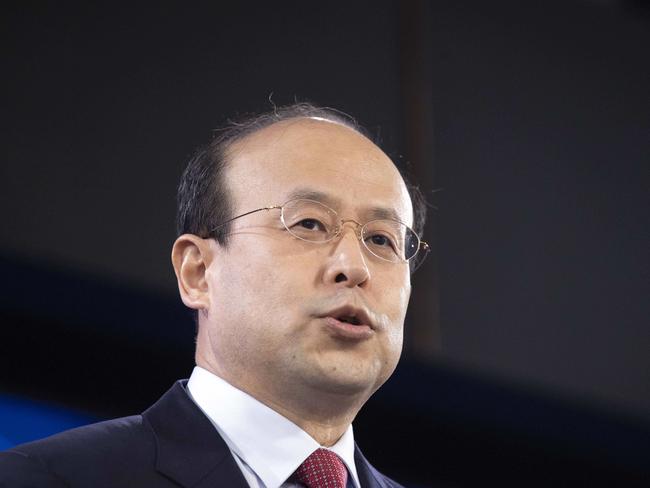
When Cheng was put in prison, Birmingham was Australia’s trade minister, having his repeated requests to speak to his Chinese counterpart denied. Now it is Trade Minister Farrell, a fellow South Australian, who is having his meeting requests rejected.
China’s ambassador in Australia, Xiao Qian, recently told Canberra’s National Press Club the 50th anniversary of Australia’s recognition of China this December could contribute to an improvement in the poisoned bilateral relationship.
In the same address, Xi’s top Australian envoy said Cheng’s and Yang’s rights were being protected under Chinese law. He blamed Covid for a two-month cessation of consular access earlier in the year and dismissed concerns about their treatment.
“Their basic rights are protected, so don’t worry about that,” Xiao said.

